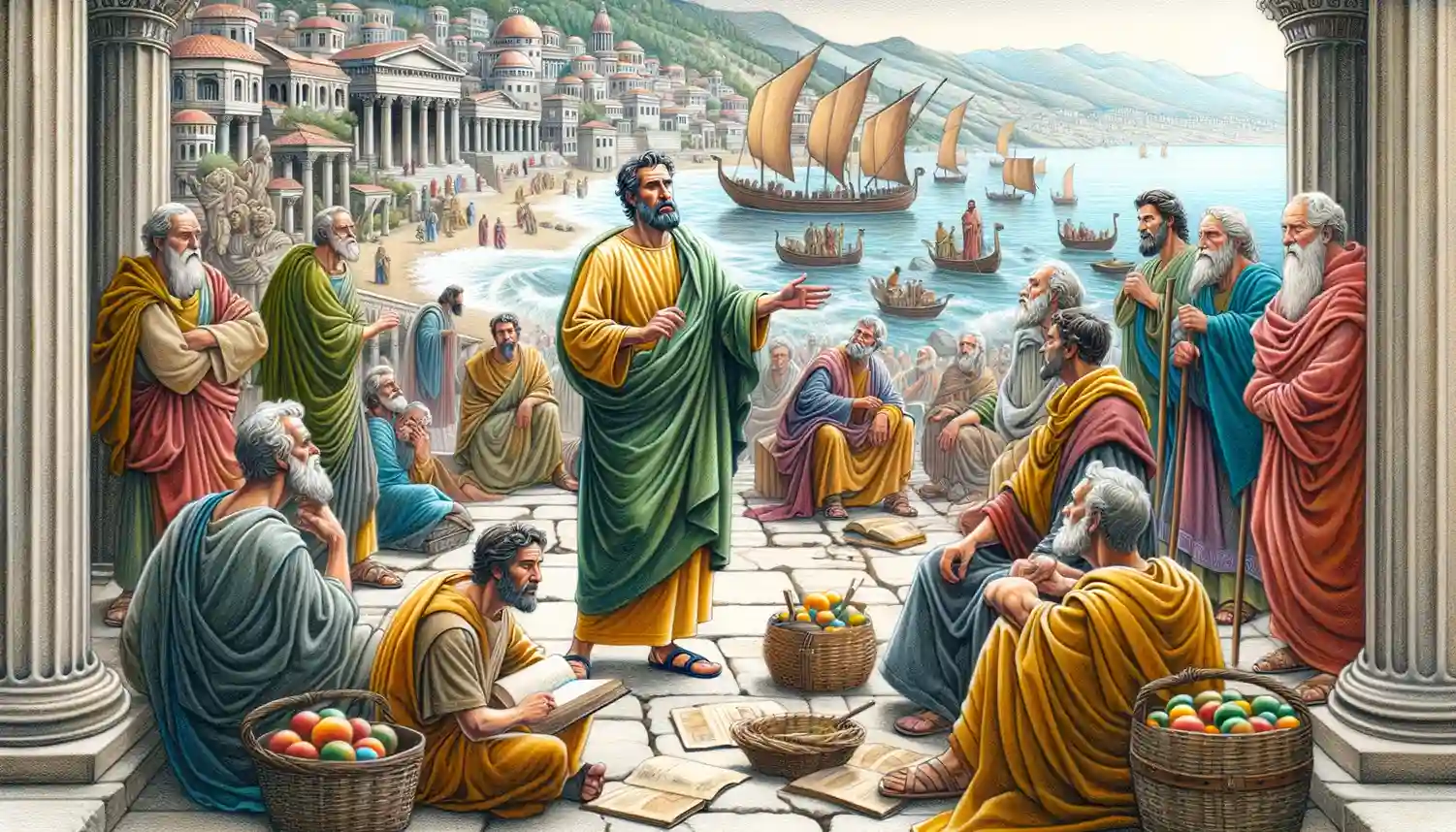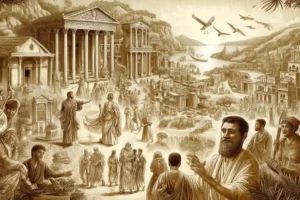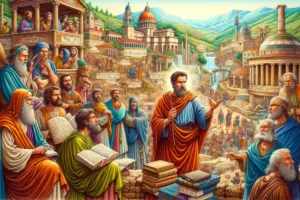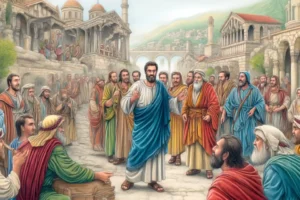
Paul’s Third Missionary Journey: Strengthening the Church
Paul’s third missionary journey was a crucial period of consolidating and strengthening the early Christian communities he had established during his previous journeys.
- Companions: Various disciples, including Timothy and Luke.
- Starting Point: Antioch in Syria.
- Key Locations: Galatia, Phrygia, Ephesus, Macedonia, Greece, Troas, Miletus, and Jerusalem.
- Opposition: Faced riots, opposition from local craftsmen, and threats from Jewish leaders.
- Miracles: Included extraordinary miracles in Ephesus and raising Eutychus from the dead.
- Message: Emphasized repentance, faith in Jesus, and the importance of unity and perseverance.
- Scriptural Reference: Acts 18:23-21:17.
Paul’s third missionary journey, recorded in Acts 18:23-21:17, was characterized by efforts to strengthen the churches he had previously founded and to continue spreading the Gospel. This journey focused on teaching, encouraging, and warning the early Christians, as well as addressing false teachings.
Departure from Antioch
Paul began his third journey by traveling from Antioch through the regions of Galatia and Phrygia, where he strengthened all the disciples (Acts 18:23). His primary aim was to fortify the faith of the believers and ensure the stability of the churches.
Extended Stay in Ephesus
Paul spent a significant amount of time in Ephesus, a major city in Asia Minor, where he stayed for about three years (Acts 19:1-10). Ephesus was a vital center for early Christianity and a hub of commerce and culture.
- Teaching and Miracles:
- Conflict with Local Craftsmen:
- Paul’s success in converting many Ephesians posed a threat to local craftsmen who made silver shrines of Artemis, leading to a riot instigated by Demetrius, a silversmith (Acts 19:23-41). This incident highlights the socio-economic impact of the spread of Christianity.
Further Travels and Encouragement
After leaving Ephesus, Paul traveled through Macedonia and Greece, encouraging the believers and collecting financial aid for the impoverished Christians in Jerusalem (Acts 20:1-3).
- Troas:
- In Troas, Paul raised Eutychus from the dead after he fell from a window during Paul’s extended teaching session (Acts 20:7-12). This miracle underscored Paul’s apostolic authority and the life-giving power of the Gospel.
- Farewell to Ephesian Elders:
Return to Jerusalem and Imprisonment
Paul’s journey concluded with his return to Jerusalem, despite numerous warnings about the dangers awaiting him there (Acts 21:10-14). Upon arrival, he was arrested in the temple following false accusations by some Jews from Asia, leading to his eventual imprisonment and trials (Acts 21:27-36).
Theological Insights
Paul’s third missionary journey highlights several important theological themes:
- Perseverance and Commitment: Paul’s unwavering commitment to his mission, despite knowing the dangers awaiting him, illustrates the depth of his dedication to Christ and the Gospel.
- Pastoral Care: His efforts to strengthen and encourage the churches emphasize the importance of pastoral care and discipleship in Christian ministry.
- Spiritual Vigilance: Paul’s warnings to the Ephesian elders about false teachers underscore the need for vigilance in maintaining doctrinal purity and unity within the church.
- Power of the Holy Spirit: The extraordinary miracles in Ephesus demonstrate the Holy Spirit’s power at work through Paul, authenticating his apostolic ministry.
Conclusion
Paul’s third missionary journey was pivotal in solidifying the foundation of the early Christian church. His extensive travels, persistent teaching, and miraculous signs strengthened the believers and prepared the churches for future challenges. Paul’s dedication, despite facing significant opposition and personal risk, exemplifies the apostolic zeal and commitment to spreading the Gospel. His journey serves as a model of faithful ministry, pastoral care, and unwavering dedication to God’s mission.



